This article needs additional citations for verification. (June 2016) (Learn how and when to remove this template message) |
| Jotirao Phule | |
|---|---|
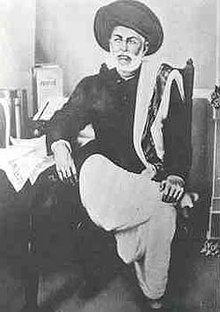 | |
| Born |
11 April 1827 Katgun, Satara District, Maharashtra, India |
| Died |
28 November 1890 (aged 63) Pune, British India (present-day Maharashtra, India) |
| Other names | Mahatma Phule / Jyotiba Phule/ Jotiba Phule / Jotirao Phule |
| Spouse(s) | Savitribai Phule |
| Era | 19th century |
Main interests | Ethics, religion, humanism |
|
Influences
| |
Jotirao Govindrao Phule (11 April 1827 – 28 November 1890) was an Indian social activist, a thinker, anti-caste social reformer and a writer from Maharashtra.
His work extended to many fields including eradication of untouchability and the caste system, women's emancipation and the reform of Hindu family life. On 24 September 1873, Phule, along with his followers, formed the Satyashodhak Samaj (Society of Seekers of Truth) to attain equal rights for people from lower castes. Phule is regarded as an important figure of the social reform movement in Maharashtra. He and his wife, Savitribai Phule, were pioneers of women's education in India. He is most known for his efforts to educate women and lower caste people. The couple were among the first native Indians to open a school for girls in India.
Contents
Early life
Jyothirao Govindrao Phule was born in 1827 into a family that belonged to the agricultural Mali caste, traditionally occupied as gardeners and considered to be of the shudra varna in the ritual ranking system of Hinduism. The original surname of the family had been Gorhe and had its origins in the village of Katgun, in present day Satara District, Maharashtra. Phule's great-grandfather worked as a chaugula, a lowly type of village servant, in that village but had to move to Khanwadi in Poona district after murdering a Brahmin with whom he had a dispute. He prospered there but his only son, Shetiba, who was of poor intelligence, subsequently squandered what had been gained. Shetiba moved himself and his family, including three boys, to Poona in search of some form of income. The boys were taken under the wing of a florist, who taught them his trade. Their proficiency in growing and arranging became well known and they adopted the name of Phule (flower-man) in place of Gorhe. Their fulfilment of commissions from the Peshwa, Baji Rao II, for flower mattresses and other goods for the rituals and ceremonies of the royal court so impressed him that he granted them 35 acres (14 ha) of land on the basis of the inam system, whereby no tax would be payable upon it. The oldest brother machinated to take sole control of the property, leaving the younger two siblings, including Jyotirao Phule's father, Govindrao, to continue farming and flower-selling.
Govindrao married Chimnabai and had two sons, of whom Jyotirao was the younger. Chimnabai died before he was aged one. The Mali community did not set much store by education, and after attending primary school to learn the basics of reading, writing and arithmetic, Jyotirao was withdrawn from school. He joined the menfolk of his family at work, both in the shop and the farm. However, a Christian convert from the same Mali caste as Phule recognised his intelligence and persuaded Phule's father to allow Phule to attend the local Scottish Mission High School. Phule completed his English schooling in 1847. As was customary, he was married young, at the age of 13, to a girl of his own community, chosen by his father.
The turning point in his life was in 1848, when he attended the wedding of a Brahmin friend. Phule participated in the customary marriage procession, but was later rebuked and insulted by his friend's parents for doing that. They told him that he being from a lower caste should have had the sense to keep away from that ceremony. This incident profoundly affected Phule on the injustice of the caste system.
Social activism
In 1848, aged 23, Phule visited the first girls' school in Ahmadnagar, run by Christian missionaries. It was also in 1848 that he read Thomas Paine's book Rights of Man and developed a keen sense of social justice. He realised that lower castes and women were at a disadvantage in Indian society, and also that education of these sections was vital to their emancipation.
To this end and in the same year, Phule first taught reading and writing to his wife, Savitribai, and then the couple started the first indigenously-run school for girls in Pune. Ostracised for this by their family and community, their friend Usman Sheikh and his sister Fatima Sheikh provided them their home to stay. They also helped to start the school in their premises. Later, the Phules started schools for children from the Mahar and Mang castes, which were both considered to be untouchable. In 1852, there were three Phule schools in operation but by 1858 they had all ended. Eleanor Zelliot blames the closure on private European donations drying up due to the Mutiny of 1857, withdrawal of government support, and Jyotirao resigning from the school management committee because of disagreement regarding the curriculum. He championed widow remarriage and started a home for pregnant Brahmin widows to give birth in a safe and secure place in 1863. His orphanage was established in an attempt to reduce the rate of infanticide. Phule tried to eliminate the stigma of social untouchability surrounding the lower castes by opening his house and the use of his water-well to the members of the lower castes.
Views on religion and caste
Phule recast the prevailing Aryan invasion theory of history, proposing that the Aryan conquerors of India, whom the theory's proponents considered to be racially superior, were in fact barbaric suppressors of the indigenous people. He believed that they had instituted the caste system as a framework for subjugation and social division that ensured the pre-eminence of their Brahmin successors. He saw the subsequent Muslim conquests of the Indian subcontinent as more of the same sort of thing, being a repressive alien regime, but took heart in the arrival of the British, whom he considered to be relatively enlightened and not supportive of the varnashramadharma system instigated and then perpetuated by those previous invaders. In his book, Gulamgiri, he thanked Christian missionaries and the British colonists for making the lower castes realise that they are worthy of all human rights. The book, whose title transliterates as slavery and which concerned women, caste and reform, was dedicated to the people in the US who were working to end slavery.
Phule saw Rama, the hero of the Indian epic Ramayana, as a symbol of oppression stemming from the Aryan conquest.[page needed] His critique of the caste system began with an attack on the Vedas, the most fundamental texts of upper-caste Hindus.[15] He considered them to be a form of false consciousness.[16]
He is credited with introducing the Marathi word dalit (broken, crushed) as a descriptor for those people who were outside the traditional varna system. The terminology was later popularised in the 1970s by the Dalit Panthers.[17]
At an education commission hearing in 1884, Phule called for help in providing education for lower castes. To implement it, he advocated making primary education compulsory in villages. He also asked for special incentives to get more lower-caste people in high schools and colleges.[citation needed]
Satyashodhak Samaj
On 24 September 1873, Phule formed Satyashodhak Samaj to focus on rights of depressed classes.[8] Through this he opposed idolatry and denounced the caste system. Satyashodhak Samaj campaigned for the spread of rational thinking and rejected the need for priests. Savitribai became the head of the women's section, which included ninety female members.[citation needed] Afterwards Phule's death in 1890 his followers continued the Samaj campaign in the remote parts of Maharashtra.[citation needed]
Occupation
Apart from his role as a social activist, Phule was a businessman too. In 1882 he styled himself as a merchant, cultivator and municipal contractor.[18] He owned 60 acres (24 ha) of farmland at Manjri, near Pune..[19] For period of time, he worked as a contractor for the government and supplied building materials required for the construction of a dam on the Mula-Mutha river near Pune in the 1870s.[citation needed] He also received contracts to provide labour for the construction of the Katraj Tunnel and the Yerawda Jail near Pune.[20] One of Phule's businesses, established in 1863, was to supply metal-casting equipment.[8]
Phule was appointed commissioner (municipal council member) to the then Poona municipality in 1876 and served in this unelected position until 1883.[21]
Published works
Phule's akhandas were organically linked to the abhangs of Marathi Varkari saint Tukaram.[22] Among his notable published works are:
- Tritiya Ratna, 1855
- Brahmananche Kasab,1869
- Powada : Chatrapati Shivajiraje Bhosle Yancha, [English: Life Of Shivaji, In Poetical Metre], June 1869
- Powada: Vidyakhatyatil Brahman Pantoji, June 1869
- Manav Mahammand (Muhammad) (Abhang)
- Gulamgiri, 1873
- Shetkarayacha Aasud (Cultivator's Whipcord), July 1881
- Satsar Ank 1, June 1885
- Satsar Ank 2, October 1885
- Ishara, October 1885
- Gramjoshya sambhandi jahir kabhar, (1886)
- Satyashodhak Samajokt Mangalashtakasah Sarva Puja-vidhi, 1887
- Sarvajanik Satya Dharma Poostak, April 1889
- Sarvajanic Satya Dharmapustak, 1891
- Akhandadi Kavyarachana
- Asprashyanchi Kaifiyat
Recognition
According to Dhananjay Keer, Phule was bestowed with the title of Mahatma on 11 May 1888 by another social reformer from Bombay, Vithalrao Krishnaji Vandekar.[23]
An early biography of Phule was the Marathi-language Mahatma Jotirao Phule yanche charitra (P. S. Patil, Chikali: 1927), which has to be treated with caution because its author was an activist.[24] Two others are Mahatma Phule. Caritra Va Kriya (Mahatma Phule. Life and Work) (A. K. Ghorpade, Poona: 1953), which is also in Marathi, and Mahatma Jyotibha Phule: Father of Our Social Revolution (Dhananjay Keer, Bombay: 1974). Unpublished material relating to him is held by the Bombay State Committee on the History of the Freedom Movement.[25]
There are many structures and places commemorating Phule. These include:
- The full-length statue inaugurated at the premises of Vidhan Bhavan (Assembly Building of Maharashtra State)
- Mahatma Jyotiba Phule Mandai, also known as Crawford Market, in Mumbai
- Mahatma Phule Museum in Pune
- Mahatma Phule Krishi Vidyapeeth (Agricultural University) in Rahuri, Ahmednagar District, Maharashtra.
- Mahathma Phule Mandai, the biggest vegetable market in Pune
- M. J. P. Rohilkhand University
- Subharti College of Physiotherapy was formerly named after him
- G. P. Deshpande's biographical play Satyashodhak (The Truth Seeker) was first performed by Jan Natya Manch in 1
Watch movie Mahatma Jyotirao Phule online on Amazon
Watch movie Mahatma Jyotirao Phule online
Watch The Movie On PrimeShikari (1963) Full HD Movie Download
.jpg)
Aaja Meri Jaan Full HD Movie Download
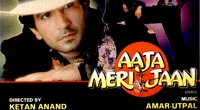
Ram Jaane Full HD Movie Download
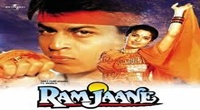
Prem Geet Full HD Movie Download

Aag(1994) Full HD Movie Download
.jpg)
Anarkali (1953) Full HD Movie Download
.jpg)
Takkar (1980) Full HD Movie Download
.jpg)
Beti (1969) Full HD Movie Download
.jpg)
Parthale Paravasam Full HD Movie Download
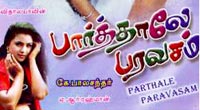
Gaalipata Full HD Movie Download

Lal Tuk Tuk Sadhaba Bohu Full HD Movie Download
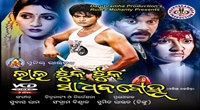
Shaitan Mantrik Full HD Movie Download
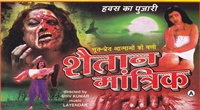
Modala Sala Full HD Movie Download
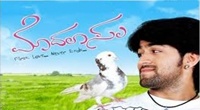
Manathil Uruthi Vendum Full HD Movie Download
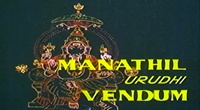
Due Date Full HD Movie Download

Krishna Sudama Full HD Movie Download
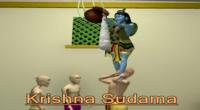
Ariyatha Veethikal Full HD Movie Download
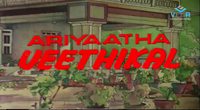
Mrugaya Full HD Movie Download

Bobby Full HD Movie Download

Idekkada Nyayam Full HD Movie Download
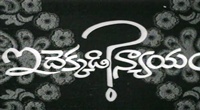
Dushman (1990) Full HD Movie Download
.jpg)
Download latest Movie from bollywood
- 1> baaghi 3
- 2> THE SKY IS PINK MOVIE FULL STORY AND REVIEW
- 3> Luka Chuppi
- 4> TO ALL THE BOYS I’VE LOVED BEFORE
- 5> Kabir Singh
- 6> Street Dancer 3D
- 7> Simmba
- 8> Gone Girl
- 9> The Girl Who Lived
- 10> Ludo
- 11> DILWALE DULHANIA LE JAYENGE
- 12> GUILTY
- 13> The Godfather
- 14> Adventures of Rusty
- 15> Sooryavanshi
- 16> Satyameva Jayate 2
- 17> Thappad
- 18> Bhool Bhulaiyaa 2
- 19> KGFChapter 2
- 20> Mardaani 2
- 21> Pinjar
- 22> Shivaji maharaj
- 23> Ek Villian 2
- 24> Hungama 2
- 25> Divergent
- 26> Mumbai Saga
- 27> The Internship
- 28> HIT (telugu)
- 29> Panga
- 30> The perfect date
- 31> 16 December
- 32> Gopala Gopala (Telugu)
- 33> Brahmastra
- 34> Gangubai Kathiawadi
- 35> Manmadhudu
- 36> Nenu local
- 37> Mahanati
- 38> Shatamanam bavathi
- 39> Lagaan
- 40> After
- 41> MOM
- 42> Shamshera
- 43> Raguvaran BTech
- 44> Khakee
- 45> The villain
- 46> OM
- 47> Mr. perfect
- 48> Bueatifull mind
- 49> Hichki
- 50> Gabbar Singh
- 51> Jogi
- 52> Before Sunrise
- 53> Before Sunset
- 54> Before Midnight
- 55> The Big Bull
- 56> Top Gun: Maverick
- 57> The Purge
- 58> The Sky is Pink
- 59> Laxmmi Bomb
- 60> Sadak 2
- 61> Sufna
- 62> Prithviraj
- 63> PK
- 64> Coolie No 1(2020)
- 65> Black Widow
- 66> Dear Zindagi
- 67> Dil Bechara
- 68> PHIR HERA PHERI
- 69> WAR
- 70> Dostana
- 71> RRR: Roudram Ranam Rudhiram
- 72> Maidan
- 73> Dabbang 3
- 74> Chhalaang
- 75> life as we know it
- 76> SherShaah
- 77> Sandeep Aur Pinky Faraar
- 78> Event Horizon
- 79> 83
- 80> Radhe: Your Most Wanted Bhai
- 81> Gunjan Saxena: The Kargil Girl
- 82> Mr India
- 83> Vivah
- 84> Anokha Bandhan
- 85> Ghost
- 86> Bhoot: Part One - The Haunted Ship
- 87> Haseen Dilruba
- 88> Laal Singh Chaddha
- 89> Qismat
- 90> Rajput
- 91> Drive
- 92> Dil Chahta Hai
- 93> Dil Ki Baazi
- 94> Dil Ka Rishta
- 95> Teesri Manzil
- 96> Dil
- 97> Love Aaj Kal
- 98> Khaali Peeli
- 99> Bunty Aur Babli 2
- 100> Atrangi Re
- 101> Gulabo Sitabo
- 102> Jodi
- 103> Suraj Pe Mangal Bhari
- 104> Deewana
- 105> Attack
- 106> Sardar Udham Singh
- 107> Toofan
- 108> THE LOVEBIRDS
- 109> Jersey
- 110> Ginny Weds Sunny
- 111> Thalaivi
- 112> Shiddat
- 113> Angels vs Zombies
- 114> Koi Mil Gya
- 115> Thank God
- 116> Bhuj: The Pride of India
- 117> Hum Aapke Hain Kaun
- 118> The Platform
- 119> Bird Box
- 120> Roohi Afzana
- 121> Torbaaz
- 122> Nikamma
- 123> World War Z
- 124> Extraction
- 125> Train to Busan
- 126> Life of Pi
- 127> SHAADI MEIN JROOR AANA
- 128> Himmat Aur Mehnat
- 129> To All The Boys: P.S. I Still Love You
- 130> Mimi
- 131> Good Newwz
- 132> Shubh Mangal Zyada Saavdhan
- 133> Raabta
- 134> Harry Potter and the Philosopher's Stone
- 135> Harry Potter and the Chamber of Secrets
- 136> Chhapaak
- 137> War of the Worlds
- 138> Harry Potter and the Prisoner of Azkaban
- 139> Harry Potter and the Goblet of Fire
- 140> MURDER MYSTERY
- 141> Shakuntala Devi
- 142> Bachchan Pandey
- 143> Jayeshbhai Jordar
- 144> Sheer Qorma
- 145> Saina
- 146> 'O' Pushpa I hate tears
- 147> Kedarnath
- 148> MS Dhoni The Untold Story
- 149> Chhichhore
- 150> Badhaai Ho
- 151> Unstoppable
- 152> Oz the Great And Powerful
- 153> The Girl on the Train
- 154> Haathi Mere Saathi 2020
- 155> The Conjuring: The Devil Made Me Do It
- 156> Gandhi Se Pehle Gandhi
- 157> The Song of Scorpions
- 158> Srimanthudu
- 159> Hello Guru Prema Kosame
- 160> Beauty and The Beast
- 161> Black Panther
- 162> Charlie and the Chocolate Factory
- 163> Bole Chudiyan
- 164> Fidaa
- 165> Duvvada Jagannadham
- 166> Bruce Lee: The Fighter
- 167> Hyper
- 168> Yaara
- 169> Red (2020)
- 170> Shivam
- 171> That Is Mahalakshmi
- 172> Nishabdham
- 173> Aashram 2020 web series
- 174> Laxmii
- 175> Mismatched
- 176> STUDENT OF THE YEAR 2
- 177> NAIL POLISH
- 178> Ramprasad Ki Tehrvi
- 179> KAAGAZ
- 180> 12 o Clock
- 181> The Power
- 182> bolo hau
- 183> Tribhanga
- 184> JAMUN
- 185> Madam Chief Minister
- 186> Maasaab
- 187> Aadhaar
- 188> Tanhaji
- 189> Bhaagi 3
- 190> Bhootnath
- 191> MALANG
- 192> Jai Mummy Di
- 193> Haathi Mere Saathi 2021
- 194> Shakeela
- 195> Unpaused
- 196> Annayya
- 197> Vamsoddharakudu
- 198> Mrugaraju
- 199> Narasimha Naidu
- 200> Sankranti
- 201> Manasu Maata Vinadhu
- 202> Anjaane
- 203> Apaharan
- 204> Bachke Rehna Re Baba
- 205> Bewafaa
- 206> Roohi
- 207> Radhe
- 208> Zindagi Khoobsoorat Hai
- 209> Yeh Mohabbat Hai
- 210> Yeh Kya Ho Raha Hai?
- 211> The Tomorrow War
- 212> DehradunDiary
- 213> Meri Shaadi Karaoo
- 214> Matruu Ki Bijlee Ka Mandola
- 215> No One Killed Jesica
- 216> Aag Ka Goola
- 217> Eight Million Dollars
- 218> Three Hundred
- 219> Cats and Dog
- 220> Decoy
- 221> Gold Rush
- 222> You Have Got Mail
- 223> Final Destination three
- 224> Tofan
- 225> Jungle
